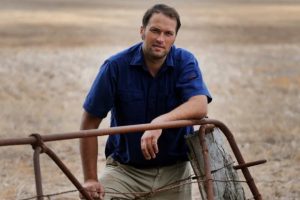
The ACCC report recommended more regulation and a new independent water markets agency to ensure the markets operate fairly and with integrity.
The creation of the new agency is among 29 recommendations, in the final report of the Australian Competition and Consumer Commission’s Murray-Darling Basin water markets inquiry.
Water lobby group Speak Up is calling for swift and decisive action on its recommendations.
“We’ve had more than 100 reports on water management in less than a decade, but most sit on a shelf gathering dust. Anything calling for serious reform has been ignored,” Speak Up chair Lachlan Marshall said.
He expressed concern that the report was released on a Friday afternoon, hoping this was not a government attempt to avoid proper scrutiny.
“Our trust in governments has been eroded by their inability or refusal to address numerous issues around water management in recent years. We cannot afford recommendations from this report to be ignored, just like so many others.”
VFF water council chairman Richard Anderson said there were some good points raised in the report and the VFF would be examining the report in detail and making a submission.
He agreed with the ACCC that there needed to be more governance controls on water brokers to make trading more transparent but he was not sure that a whole new agency should be created to manage water markets.
He favoured a national clearing house or platform for water markets which would enable irrigators to access the latest information on markets in real time, across an already integrated river system.
Mr Anderson said some of the points raised in the report reflected the VFF’s lobbying on issues like metering and monitoring.
ACCC deputy chair Mick Keogh said with an annual average value of more than $1.8 billion per year, water markets in the Murray-Darling Basin were now of a scale that warranted serious and focused attention.
“What started as an informal system for transferring water rights between neighbours has grown into a complex set of markets, but unfortunately the normal regulatory framework that would be expected for a market of this scale has not been developed.
“A new independent water markets agency, backed by appropriate legislation, should prioritise making markets work for water users, traders and the economy to deliver the benefits of water trade.”
Mr Keogh also said many water users did not trust that water markets were fair.
“Inevitably this lack of trust will inhibit efficient investment in agricultural production in the basin, to the detriment of all Australians,” he said.
“The ACCC’s recommendations will help to build trust and market efficiency by strengthening market integrity, improving transparency and information, improving trade services and better aligning market rules and arrangements with the physical characteristics of the river system.”
The report recommends new basin-wide laws to be enforced by the proposed water markets agency that would deal with harmful market conduct and practices, including bans on market manipulation, stronger insider trading rules, and a mandatory code of conduct to apply to water market intermediaries such as brokers.
A new requirement would see all market participants providing a single identifier on trade forms, to allow the new regulator to trace and follow transactions and enforce rules against misbehaviour.
“The ACCC report also recommends that Australian and basin state governments work with market service providers to establish and implement new digital technologies to improve the quality and flow of water market data, and provide a hub for water trade applications, data storage and access to information,” Mr Keogh said.
“Problems with the design and operation of the basin’s ‘market architecture’ should also be addressed to make sure market settings and trade impacts relate more closely to the river system’s physical characteristics.”
The ACCC will conduct public forums at five locations across the Murray-Darling Basin, including Deniliquin and Shepparton next month, where stakeholders can hear directly about the findings and recommendations in the report.
For more information, visit www.accc.gov.au/waterinquiry
The ACCC found “significant deficiencies” in current water trading arrangements.
The ACCC found that:
● There is a lack of quality, timely and accessible information for water market participants.
● There are scant rules governing the conduct of market participants, and no particular body to oversee trading activities, undermining confidence in fair and efficient markets. In particular, water market intermediaries such as brokers and exchange platforms currently operate in a mostly unregulated environment.
● Trading behaviours that can undermine the integrity of markets, such as market manipulation, are not prohibited, insider trading prohibitions are insufficient, and information gaps make these types of detrimental conduct difficult to detect.
● Differences in trade processes and water registries between the basin states prevent participants from gaining a full, timely and accurate picture of water trade, including price, supply and demand.
● Irrigators and traders would benefit from governments providing better information on key policies and river operations as this information would help them to develop informed expectations about water supply and to make business decisions.
● Changing conditions — such as reduced inflows, shifts in water use, declining channel capacity and increasingly binding trade restrictions — are challenging key assumptions that underpin trade arrangements and the design of tradeable water rights. These assumptions need to be reassessed so that water markets operate more efficiently in close connection with the river system’s physical characteristics into the future.
























